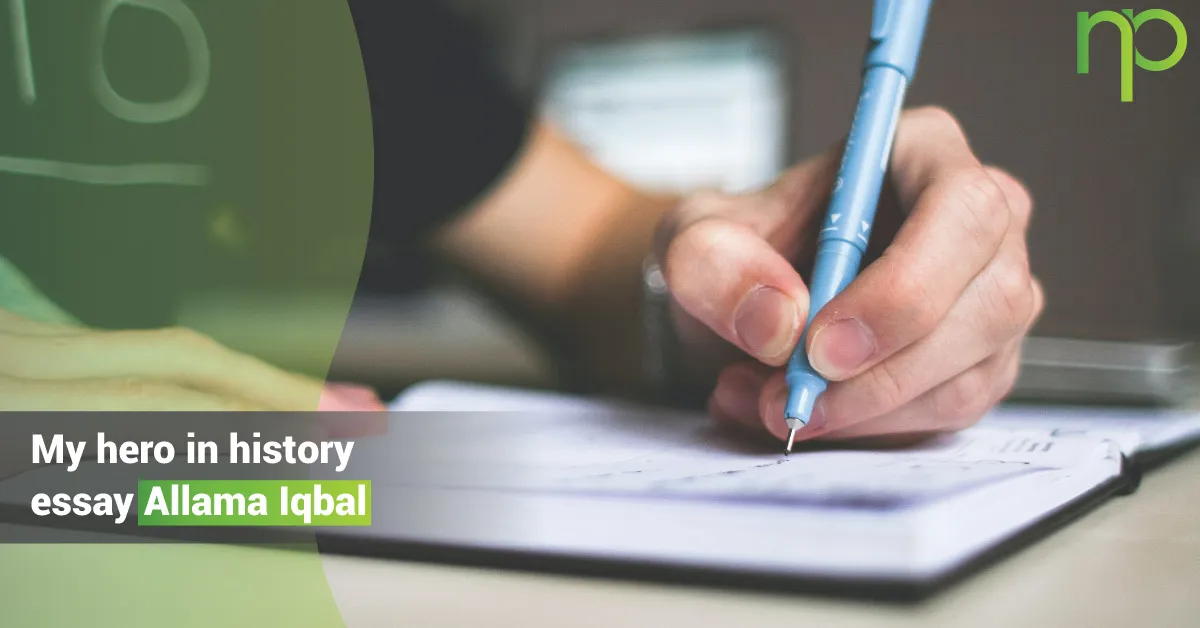
- November 8, 2023
- ubaidah khan
- 0
Allama Iqbal, a name that resonates with wisdom, vision, and the spirit of an awakened nation, holds a special place in the hearts of Pakistanis. This essay is a homage to the man who isn’t just an idol in history but a source of alleviation for generations.
Early Life and Education:
Born in Sialkot, British India, in 1877, Allama Iqbal displayed brilliance from an early age. His thirst for knowledge led him to seek education both in India and abroad. He attained degrees in gospel and law and went on to earn a Ph.D. from the University of Munich, Germany.
Allama Iqbal's part in the Pakistan Movement:
Allama Iqbal’s vision and gospel played a vital part in the struggle for an independent Muslim state. His poetry and speeches electrified the millions, and he’s frequently appertained to as Mufakkir-e-Pakistan (The Thinker of Pakistan). He emphasized the need for a separate Muslim nation in India, which ultimately led to the creation of Pakistan in 1947.
Philosophical benefactions:
Iqbal’s philosophical workshop, especially his conception of” Khudi” or identity, inspired people to realize their eventuality. His jottings prompted individualities to strive for particular growth and tone consummation, contributing to a stronger, tone-reliant society.
Literary Works and Poetry:
Allama Iqbal’s poetry, rich in imagery and meaning, is a treasure trove of alleviation. His work frequently centered on themes of church, tone-discovery, and the concinnity of Muslims. His most notorious work,” Bang-e-Dra,” is a collection of runes that continues to allure compendiums worldwide.
Vision for a United Muslim Nation:
Iqbal’s vision extended beyond the creation of Pakistan. He envisaged a united Muslim world, where nations would unite and work together for the betterment of all. His conception of” Ummah” emphasized Muslim concinnity, a conception that remains applicable in the moment’s global geography.
Allama Iqbal's Impact on Ultramodern Pakistan:
The impact of Allama Iqbal’s vision and gospel can be seen in ultramodern Pakistan. His training has told the country’s educational and political systems, and his poetry is part of the public class. Iqbal’s testament remains an integral part of the public morality.
Flashing back the idol:
Iqbal Day is celebrated in Pakistan on November 9th every time, commemorating the minstrel- champion’s birth anniversary. The day is marked with forums, conversations, and events that pay homage to his life and work.
His Applicability moment:
Allama Iqbal’s training continues to guide individuals in their particular and professional lives. His emphasis on tone-mindfulness, concinnity, and social justice is dateless and holds the implicit to bring about positive change.
Allama Iqbal's quotations for Inspiration:
Then are some of Allama Iqbal’s quotations that continue to inspire people;
- “Khudi ko kar buland itna, ke har taqdeer se pehle, Khuda bande se khud pooche, bata teri raza kya hai.”(Raise yourself to similar heights that indeed before fortune, God Himself asks,’ What’s it that you ask?’)
- “Nations are born in the hearts of muses; they prosper and die in the hands of politicians.”
- “The ultimate end of the pride isn’t to see commodity, but to be a commodity.”
The festivity of Iqbal Day:
Iqbal Day isn’t just an occasion to flashback a literal figure; it’s a day to revitalize the spirit of soul-searching and tone-enhancement. It reminds us of the power of words and ideas in shaping a nation’s fortune.
Influential numbers Inspired by Iqbal:
Allama Iqbal’s influence extends beyond Pakistan. His gospel has inspired leaders and thinkers worldwide, including Nelson Mandela, Muhammad Ali Jinnah, and Malala Yousafzai, who continue to endorse justice, freedom, and self-determination.
The Power of His Words:
Allama Iqbal’s words have the unique capability to reverberate with people in a particular position. His poetry, laden with conceit and symbolism, allows individualities to find their meaning and alleviation within his verses.
The Significance of Admitting Our Icons:
In a world filled with chaos and distractions, admitting and celebrating icons like Allama Iqbal is essential. Their stories and training remind us of our participated values and the eventuality of greatness within each of us.
Conclusion:
Allama Iqbal, the champion, minstrel, and visionary, remains a lamp of wisdom and alleviation. His heritage continues to shape the lives of numerous individuals, and his training transcends time and borders. In a world that seeks direction and purpose, we can turn to Allama Iqbal for guidance, wisdom, and the courage to pursue our dreams.
FAQs:
What’s the significance of Allama Iqbal’s conception of” Khudi”?
Allama Iqbal’s conception of” Khudi” emphasizes tone- tone-tone-consummation and particular growth, encouraging individualities to reach their full eventuality.
How did Allama Iqbal contribute to the creation of Pakistan?
Allama Iqbal’s poetry and gospel played a significant part in inspiring the demand for a separate Muslim nation, which led to the creation of Pakistan in 1947.
What’s Iqbal Day, and how is it famed?
Iqbal Day is celebrated on November 9th in Pakistan to commemorate Allama Iqbal’s birth anniversary. It’s marked with forums, conversations, and events that pay homage to his life and work.
Who are some influential numbers inspired by Allama Iqbal?
Influential numbers inspired by Allama Iqbal include Nelson Mandela, Muhammad Ali Jinnah, and Malala Yousafzai, who have supported justice, freedom, and tone- tone-tone-determination.
What can we learn from Allama Iqbal’s training moment?
Allama Iqbal’s training emphasizes tone-mindfulness, concinnity, and social justice, which remain applicable and have the eventuality to bring about positive change in the moment’s world.